Share post now

global
The Alliance Sud magazine analyses and comments on Switzerland's foreign and development policies. "global" is published four times a year (in german and french) and can be subscribed to free of charge.
Interview with former Foreign Minister Micheline Calmy-Rey
21.03.2024, International cooperation
In these times of crisis, former Federal Councillor Micheline Calmy-Rey finds that Switzerland's diplomacy lacks a clear stance. As guarantor of the Geneva Conventions, Switzerland should step up its involvement in support of civilians.
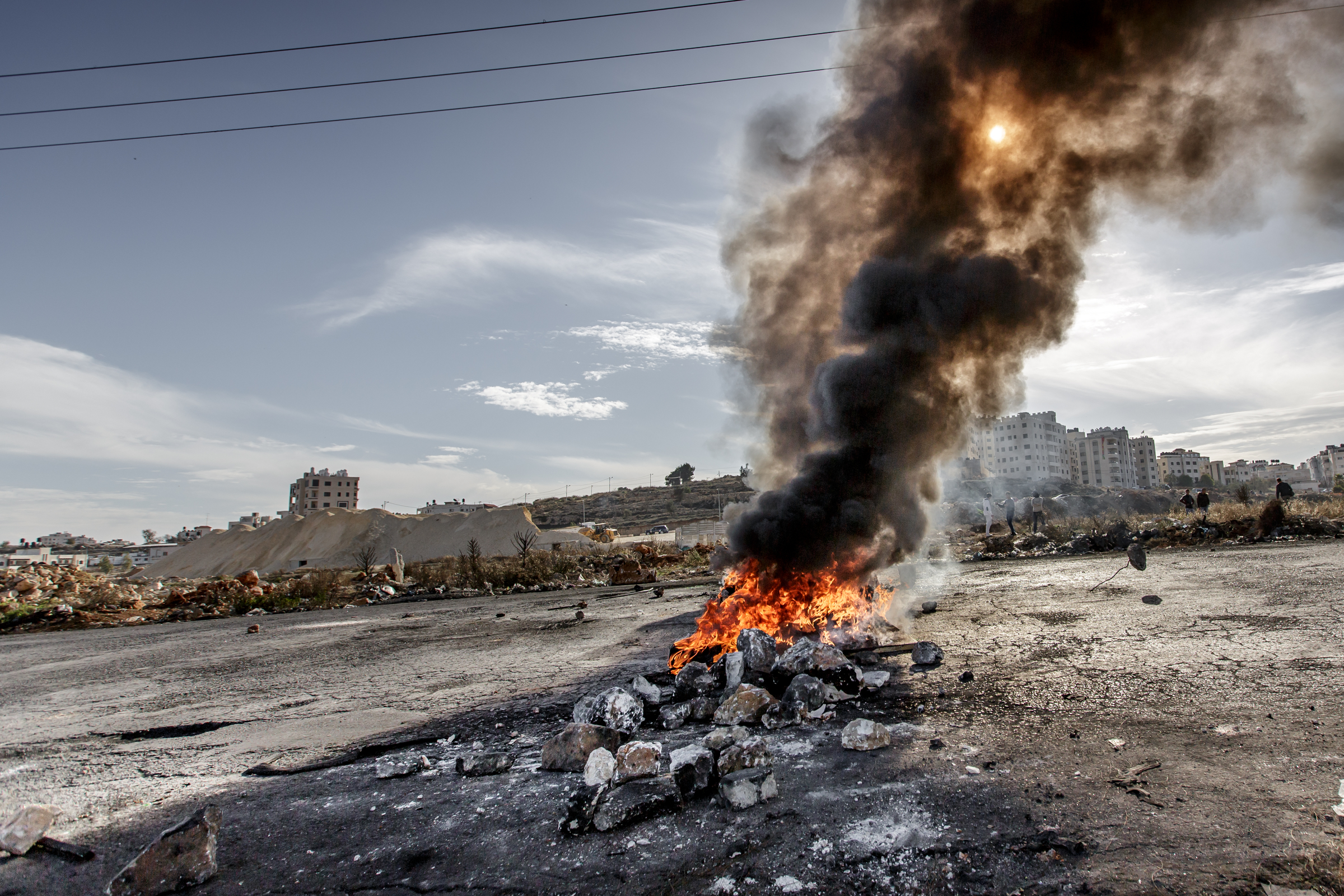
Devastation after Friday prayers: Palestinian youths and Israeli soldiers regularly clash in Ramallah.
The city is surrounded by three UNRWA-administered camps for displaced persons and almost 1,000 NGOs. © Klaus Petrus
Alliance Sud: Mrs Calmy-Rey, 20 years after the launch of the Geneva Initiative, the Middle East is witnessing the worst war since the State of Israel was created in 1948. How do you view Switzerland's role in this conflict?
The Geneva Initiative supported by Switzerland was an alternative peace plan signed between Palestinian and Israeli civil society aimed at a comprehensive settlement of the conflict and a two-State solution. In 2022, the Federal Department of Foreign Affairs (FDFA) withdrew its support for this Initiative while continuing to talk about a two-State solution. It must be said that over the past decade, the objective of a Palestinian state did become secondary on the international agenda. We have ignored a conflict deemed to have no solution and continued to engage in the rhetoric about a two-State solution, but Western countries have done nothing to bring it about. The best illustration of this is the weakening of the Palestinian Authority. The thinking was that normalising relations between Gulf States and Israel would lead to a resolution of the conflict, but this is clearly not the case. Today, the idea of a two-State solution has resurfaced, but its implementation remains problematic in the light of the lingering issues around the status of Jerusalem, settlements policy, and the right of return for refugees.
Times have also changed. Isn't the two-State solution even more difficult to implement today than 20 years ago?
Yes, you are right. Look at the trend in the numbers of Jewish settlers in the Occupied Palestinian Territories: in 1993 there were 280,000, today there are 700,000. The building of the separation wall has transformed the West Bank into entirely ungovernable micro-enclaves. More than 90 per cent of the land between the Mediterranean and Jordan is under direct Israeli control. For now, the two-State solution remains wishful thinking.
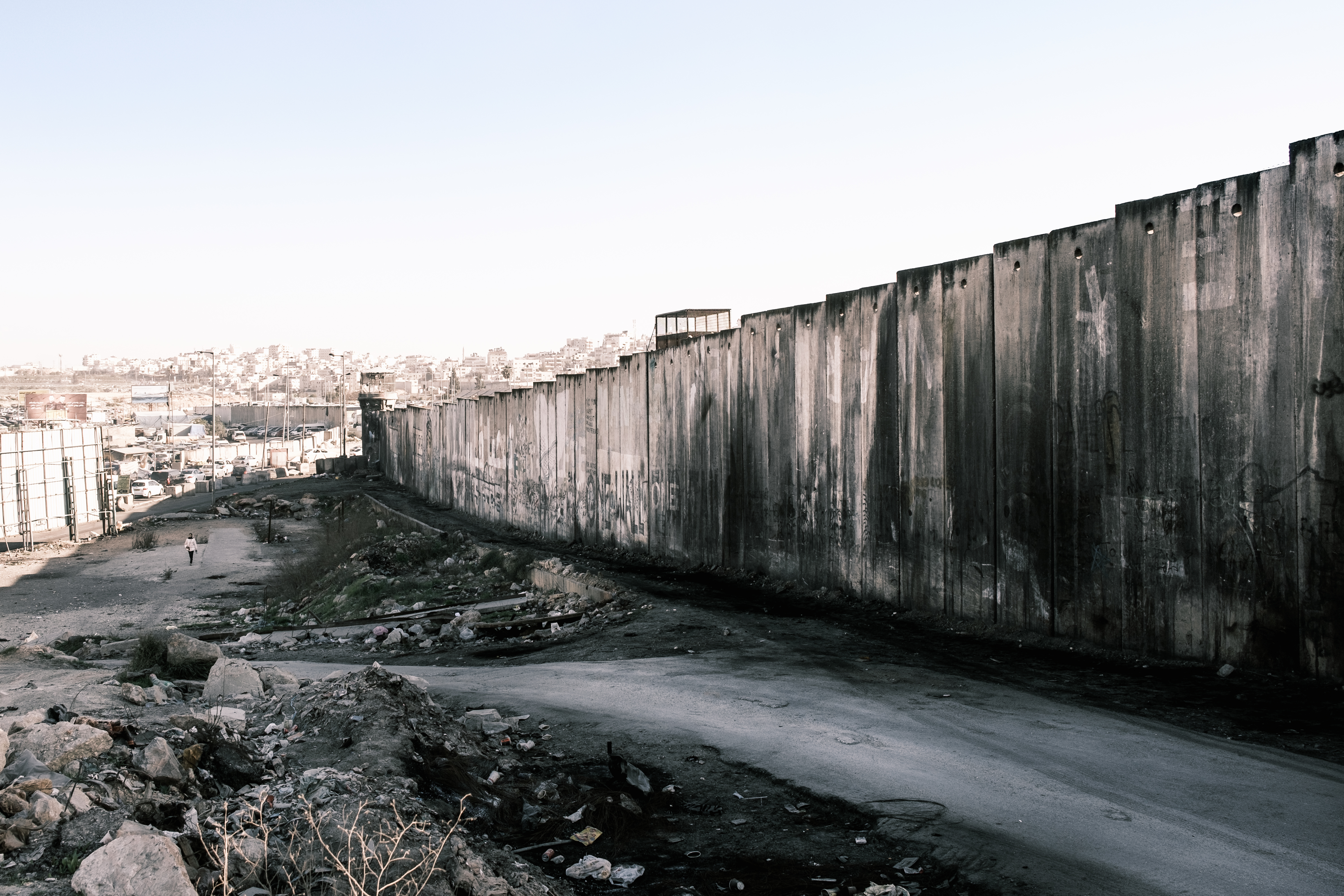
Qalandia checkpoint: At the end of the Second Intifada, a wall was built, seven metres high in places, which today separates the West Bank from Jerusalem and Israel. © Klaus Petrus
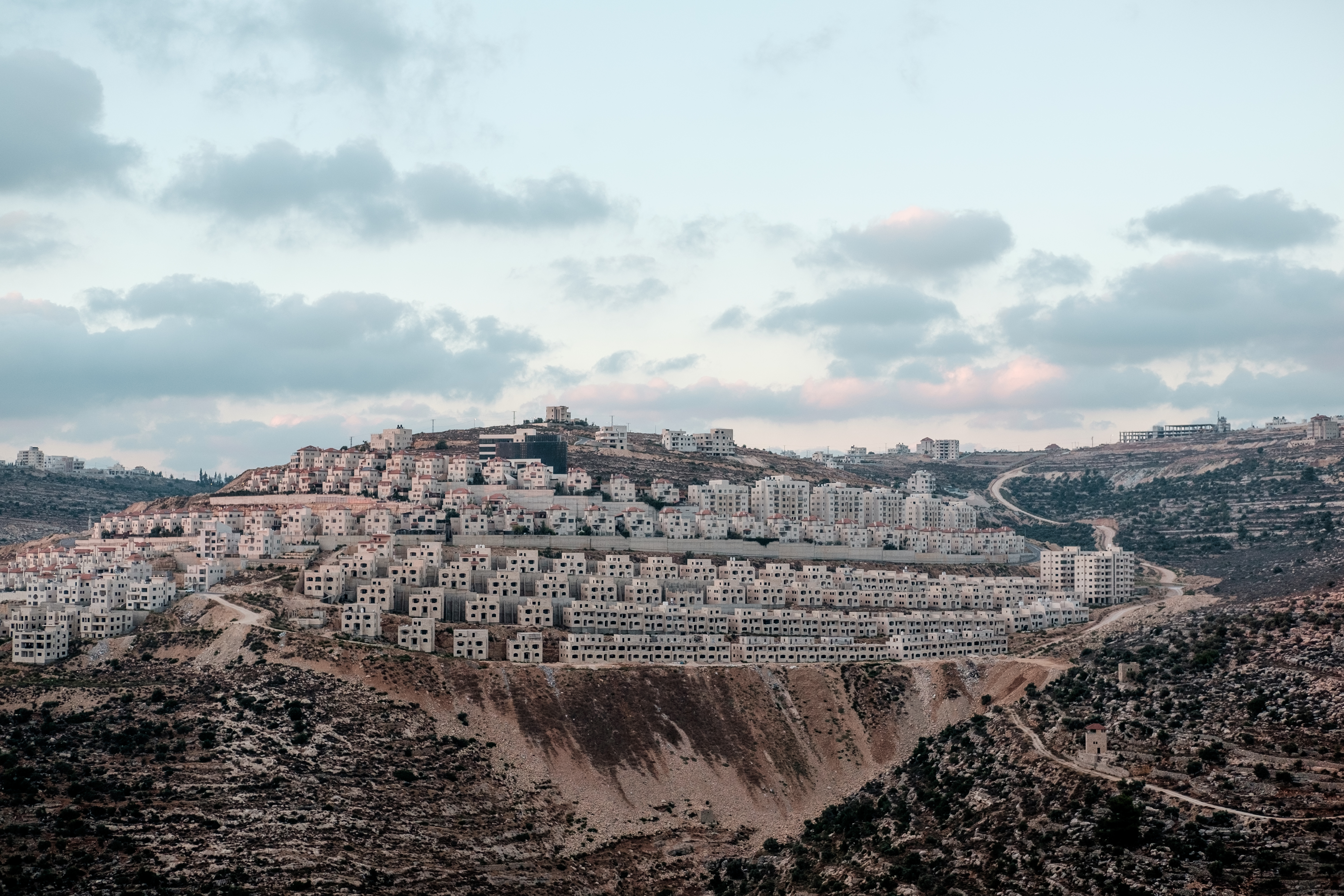
Construction of an Israeli settlement near Bet El, north-east of the Palestinian city of Ramallah. © Klaus Petrus
What do you think of Switzerland's cooperation in the region at present?
I’m finding it difficult to make out a clear Swiss position. Its message is confusing. In its official position, it called on the parties to fulfil their obligations under international law (IL) and international humanitarian law (IHL). Along with 120 other countries, Switzerland approved a General Assembly resolution calling for an immediate humanitarian truce. But this attitude has drawn criticism from some quarters. At the same time, the head of the FDFA announced Switzerland’s suspension of funding for 11 organisations in Palestine and Israel – thereby catering to the wishes of some political parties that are keen to see an examination of whether development aid to Palestine should be cancelled. In the end, only three Palestinian organisations are being affected by the suspension. Lastly, while Switzerland had initially decided not to cut the CHF 20 million paid annually by Bern to the UN Relief and Works Agency for Palestinian Refugees (UNRWA), it may well reassess its funding in the wake of the announcement of the immediate dismissal of 12 of its employees suspected of being linked to the attack on Israel on 7 October. Regrettably, there is a substantial risk that Switzerland's contribution could ultimately be suspended, despite the colossal humanitarian needs in Gaza.
I’m finding it difficult to make out
a clear Swiss position.
What do you think of Switzerland's announcement that it wants to organize a peace conference on Ukraine?
At the WEF in Davos, Switzerland stated that it would help organize a peace conference. Usually, preliminary talks are held, the aims of the meeting are determined, and a public announcement is then made. In Davos, Switzerland did it the other way round. The fact remains that the situation is different from that of a classic mediation between two States at war. The peace conference would take place after four meetings of security advisers from more than 80 countries, the last of which took place at Davos, and all of which were public. The method therefore had to be adapted. I am pleased that Switzerland is making moves and deploying its not insignificant strengths. At the moment, however, we can only speak of preliminary preparations.
What would happen next?
Russia is unlikely to participate directly in the first summit. At the same time, a peace conference without Russia is inconceivable. In Davos, our President and our Foreign Minister expressed their wish to involve Russia. They affirmed that Switzerland wanted to work with as many Heads of State as possible, especially with States that have so far tended to side with Russia. If instead of merely playing host, Switzerland wants to help shape the discussion, it will also have to determine the content, whence the importance of involving States close to Russia and Russia itself. Besides, it is unrealistic at this stage to expect agreement on most of the points of the Ukrainian peace plan. Switzerland should determine, in the abstract, the points on which there is promise of a common denominator between the friends of Ukraine and the defenders of Russia. There are also technical issues on which interim agreements could be reached in the interests of the parties, for example, on cereals, prisoner exchanges, the safety of nuclear power stations, and so on.
I would like Switzerland to be more outspoken and forthright regarding the observance of international humanitarian law.
You were instrumental in Switzerland's bid for membership of the UN Security Council. What do you think of its performance after a year?
Switzerland has been able to pursue its traditional foreign policy in the Security Council. After the earthquake in northern Syria, it worked with Brazil to facilitate humanitarian access. But the country finds itself on the Security Council at a time when multilateralism is in difficulty, being hampered by the vetoes of the major powers. I would have expected Switzerland to be somewhat more proactive in regard to the application of international humanitarian law. It's a pity that the country isn't doing more in this regard, as we cannot accept what is happening in Ukraine or in the Israeli-Palestinian conflict. No-one is observing the Geneva Conventions, as evidenced by indiscriminate bombing in Gaza, and acts perpetrated by Hamas on 7 October that constitute war crimes. It is unacceptable for so many Israeli civilians to be killed, for Palestinians to be trapped in Gaza by Hamas, and for aid deliveries to be impeded. I would like Switzerland to be more outspoken and forthright regarding the observance of international humanitarian law. After all, it was born in Geneva and Switzerland is the guarantor of the Geneva Conventions.
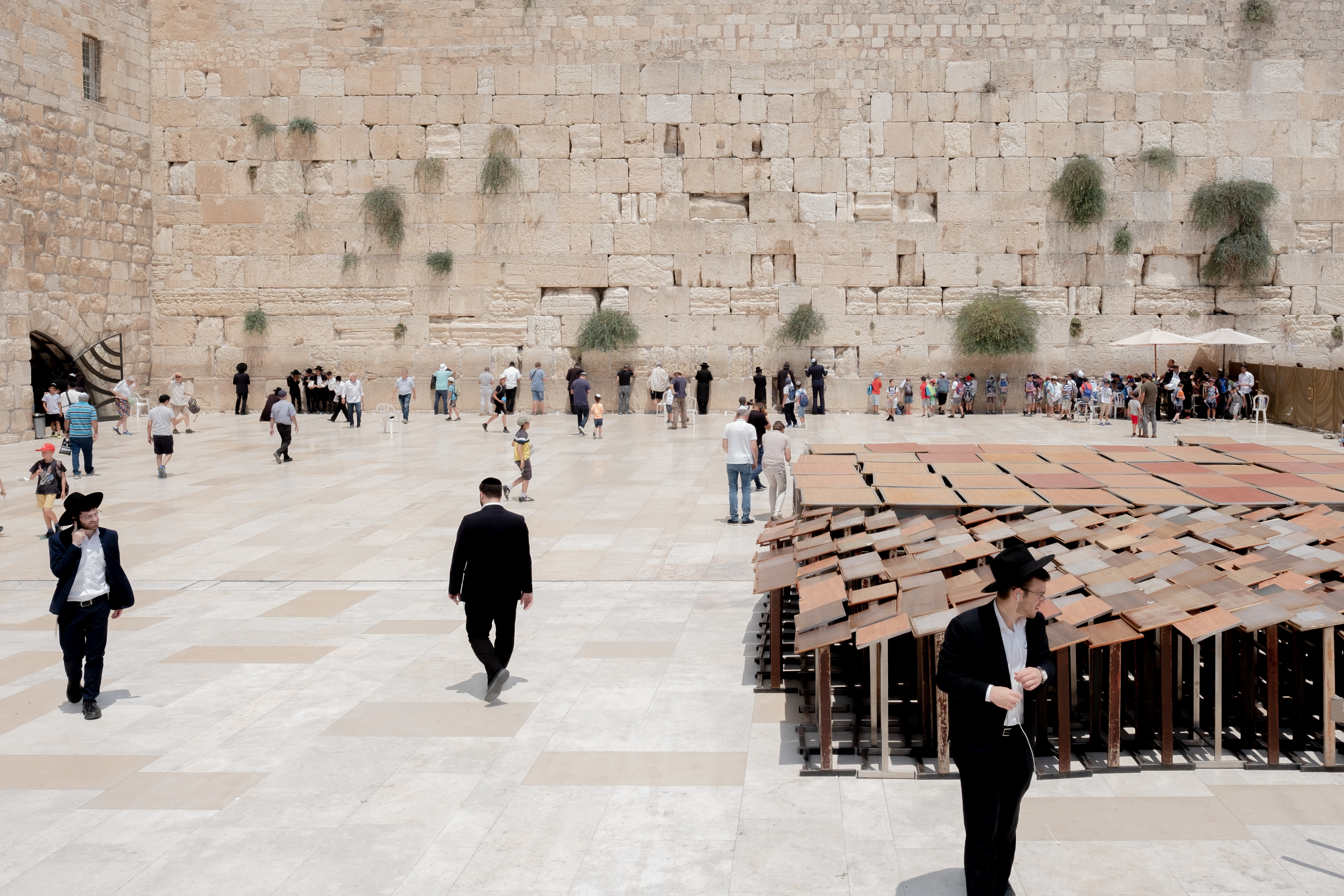
Western Wall or Wailing Wall in the Jewish Quarter of the Old City of Jerusalem with
Jewish believers and ultra-Orthodox. © Klaus Petrus
At the same time, multilateralism seems weakened... Do you still have confidence in UN institutions, and what role should Switzerland and international Geneva play?
The Security Council is being paralysed by vetoes from one side or another. But the technical agencies are concentrated in Geneva, and when the discussion turns to the erosion of multilateralism, we must also look at what is happening here. The Palais des Nations was closed for a fortnight to save on heating costs, the International Committee of the Red Cross (ICRC) will be laying off 4000 staff, and the Office of the United Nations High Commissioner for Refugees (UNHCR) is also set to shed a good many staffers. Geneva is home to an impressive number of technical UN agencies which, while facing problems, also possess the data required for the smooth running of globalisation. They handle mobile frequencies, patents and trademarks, public health, working conditions, the climate, and the coordination of humanitarian aid. The United Nations needs thoroughgoing reform, not only of the Security Council, but also to make its technical agencies more effective.
How do you view Switzerland's development cooperation? Do you think that the regular budget of the Swiss Agency for Development and Cooperation (SDC) should be used to fund the reconstruction of Ukraine?
From what I can see on the SDC website, it advocates political and economic autonomy for States. Switzerland's priority has been and still is to help the poorest people. In any case, I find it indefensible, from a foreign policy standpoint, to cut aid to the poorest countries – this being a regular budget item that is renewed from year to year and a sustainable SDC aim – and reallocate it for reconstruction in Ukraine. This is undoubtedly a highly desirable and necessary objective, but hopefully one that is limited in time and, as I see it, one that should benefit from special funding.
The Swiss people are finding it difficult to understand why arms are not being sent to Ukraine, but to Saudi Arabia, which is waging war in Yemen.
Does Swiss neutrality still apply today?
Switzerland currently pursues a policy of neutrality. It does not send weapons to belligerents, either directly or through intermediaries. Switzerland condemned Russia's aggression, as it contravened international law. It applies economic sanctions against Russia. Had it not followed up its condemnation with sanctions, it would have opened the way for European sanctions to be circumvented, thereby siding with the aggressor. Yet, the Swiss people are finding it difficult to understand why arms are not being sent to Ukraine, but to Saudi Arabia, which is waging war in Yemen. The war in Ukraine is not typical of our times. Today, armed conflicts between States are the exception. Civil strife is on the increase, as are cyberattacks. And what should we do when things become even more complex? The law of neutrality does not prohibit arms exports to Saudi Arabia, as the case of Yemen does not constitute an armed conflict between countries. The definition of war under the law of neutrality clearly poses a challenge of interpretation.
As Special Envoy of the OIF Secretary-General to monitor the situation in Madagascar, you recently headed an electoral observation mission to Antananarivo on behalf of the Francophonie. This year will see a record number of people going to the polls around the world. Is this a litmus test for democracy?
In Madagascar, the question confronting the community of like-minded countries (Switzerland, the EU, the USA and Western countries) was somewhat different. Madagascar is a gateway between Africa and China, and there is a Chinese and Russian presence on the island. The like-minded community observed the electoral process and formulated observations. It wanted a more inclusive, transparent and open electoral process but, for geopolitical reasons, agreed to finance a less-than-ideal process, and the outgoing president was re-elected. Madagascar is a very poor country and electoral processes cannot be measured by the yardstick that is used in Switzerland. Not all Madagascans have access to electricity, not all polling stations are connected, and means of communication are lacking.
The interview was conducted at the end of January 2024 and translated from French.
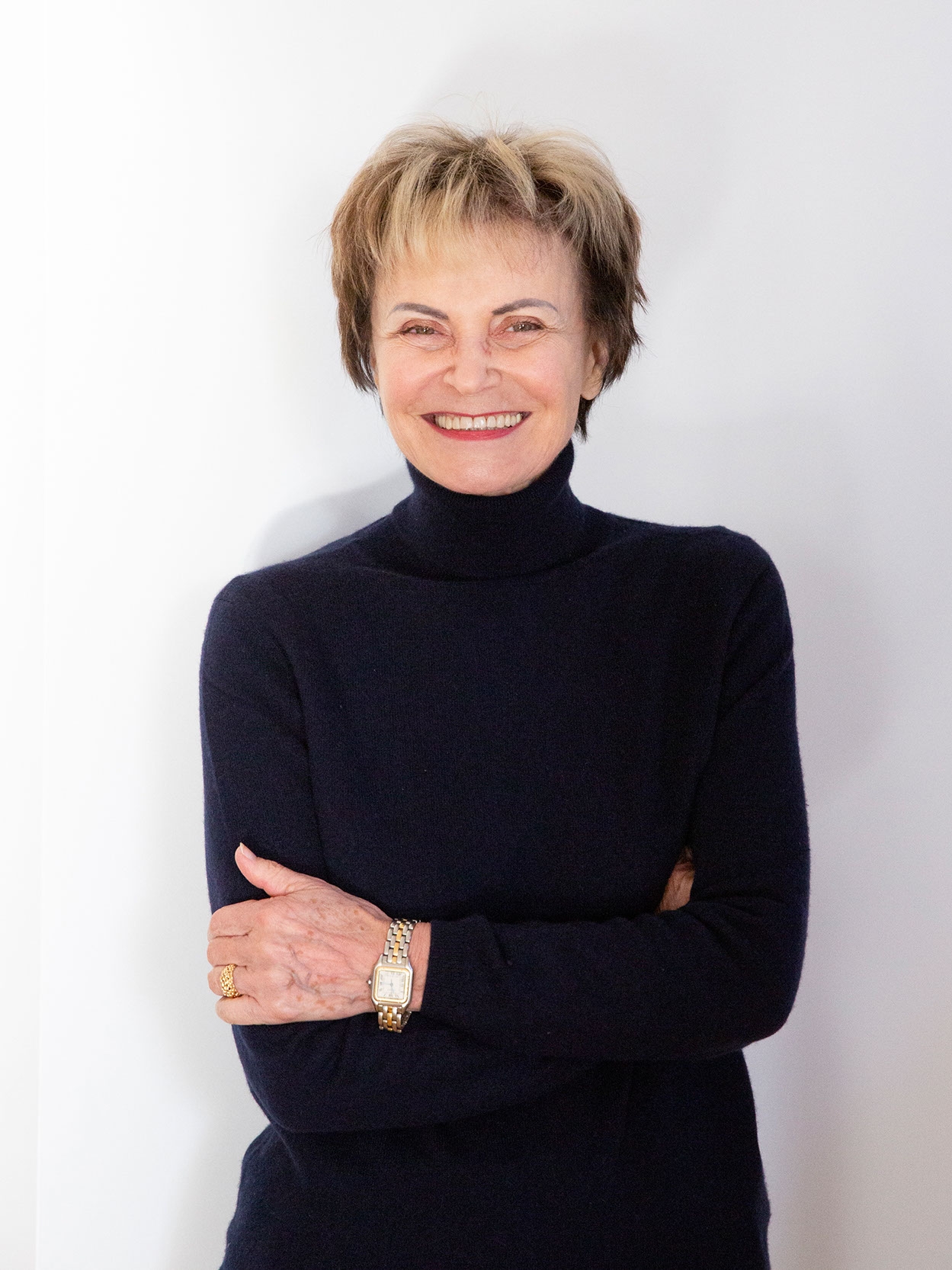
Micheline Calmy-Rey
Former Federal Councillor Micheline Calmy-Rey was Head of the Federal Department of Foreign Affairs (FDFA) from 2002 to 2011. She pursued a policy of active neutrality, thereby involving Switzerland in a number of international mediations and peace initiatives. The best known of them is the mediation between the Russian Federation and Georgia, which paved the way for Russia’s membership of the World Trade Organisation in 2011. Switzerland was also involved in mediations between Turkey and Armenia. In 2008, Micheline Calmy-Rey successfully negotiated the agreements on the representation of Georgia in Russia and of Russia in Georgia.
Share post now

global
The Alliance Sud magazine analyses and comments on Switzerland's foreign and development policies. "global" is published four times a year (in german and french) and can be subscribed to free of charge.